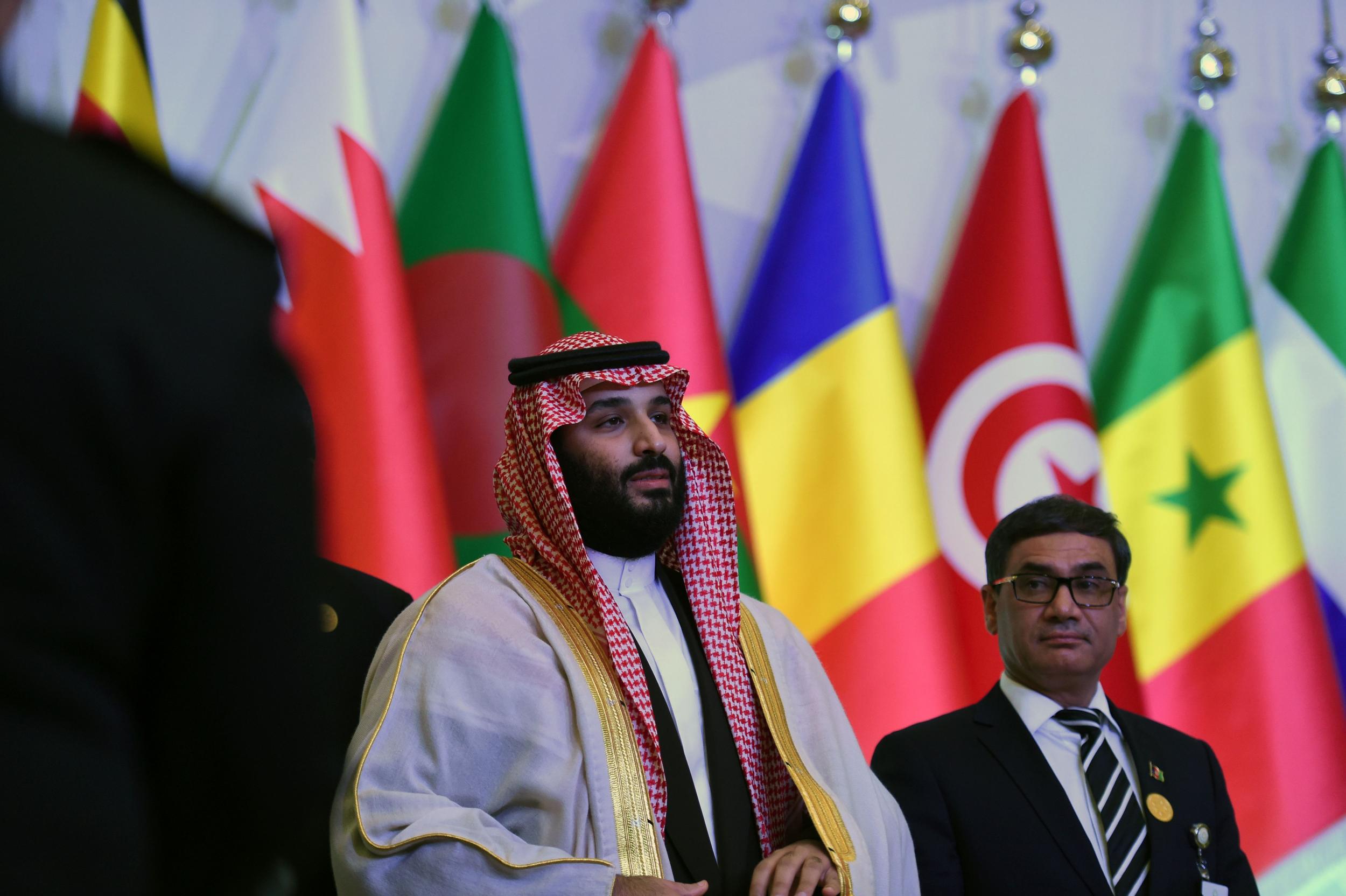More than 40 Islamic countries just met and vowed to wipe terrorism off the map
Arab counter-terrorism alliance created by Saudi crown prince Mohammed bin Salman in 2015 meets for first time in Riyadh

Your support helps us to tell the story
As your White House correspondent, I ask the tough questions and seek the answers that matter.
Your support enables me to be in the room, pressing for transparency and accountability. Without your contributions, we wouldn't have the resources to challenge those in power.
Your donation makes it possible for us to keep doing this important work, keeping you informed every step of the way to the November election

Andrew Feinberg
White House Correspondent
Saudi Arabia’s powerful crown prince Mohammed bin Salman has vowed terrorists will be pursued until they are “wiped off the face of the earth” in the first meeting of a new Arab alliance designed to defeat extremism.
“We will not allow them (terrorists) to distort our peaceful religion. Today we are sending a strong message that we are working together to fight terrorism,” Prince bin Salman told assembled defence ministers in a keynote address in Riyadh on Sunday.
“In past years, terrorism has been functioning in all of our countries... with no coordination” against it from governments, he added. “This ends today, with this alliance.”
The crown prince, who is also defence minister, created the Islamic Military Counter Terrorism Coalition in 2015 in response to the growing threat of Isis and criticism that Islamic countries were not doing enough to counter religious extremism.
The first meeting this week comes as Isis faces the collapse of its so-called caliphate in Iraq and Syria – but in the wake of a suicide bombing and gunmen assault on a mosque in Egypt’s Sinai province last week which killed more than 300 people.
The “painful event” was a reminder of the “danger of terrorism and extremism”, Prince bin Salman said.
“Beyond the killing of innocent people and the spread of hatred, terrorism and extremism distort the image of our religion,” he added.
Countries involved in the coalition include Egypt, the United Arab Emirates, Bahrain, Afghanistan, Uganda, Somalia, Mauritania, Lebanon, Libya, Yemen and Turkey.
Iran – Saudi Arabia’s regional arch-rival – is not included in the group. Syria and Iraq, whose governments have close connections to Tehran, are also not part of the alliance.
While the alliance officially includes Qatar, the target of a six-month boycott led by Saudi Arabia, organisers in Riyadh said no Qatari officials were present.
“The pillar of this coalition is inclusion,” said Saudi General Abdulelah al Saleh, the alliance's acting secretary general, playing down the perceived tensions.
“Our common enemy is terrorism, not any religion, sect or race.”
The meeting coincides with a low in relations between Riyadh and Tehran over their roles in the wars in Syria and Yemen – and the resignation of Lebanese Prime Minister Saad al Hariri from Riyadh this month, which many observers believe was orchestrated by the Saudi authorities to destabilise Lebanon’s coalition government.
Mr Hariri said he had resigned in protest at the growing power of Iran-allied political and militant organisation Hezbollah. He postponed the move on his arrival back in Beirut last week.
Since his sudden appointment as heir to the throne in June, Prince bin Salman has shaken up the political scene both in Saudi Arabia and the wider region.
In what is widely seen as a move designed to consolidate his power, more than 200 members of the Saudi elite, among them princes and business tycoons, were arrested in a crackdown on corruption.
Subscribe to Independent Premium to bookmark this article
Want to bookmark your favourite articles and stories to read or reference later? Start your Independent Premium subscription today.
Join our commenting forum
Join thought-provoking conversations, follow other Independent readers and see their replies
Comments